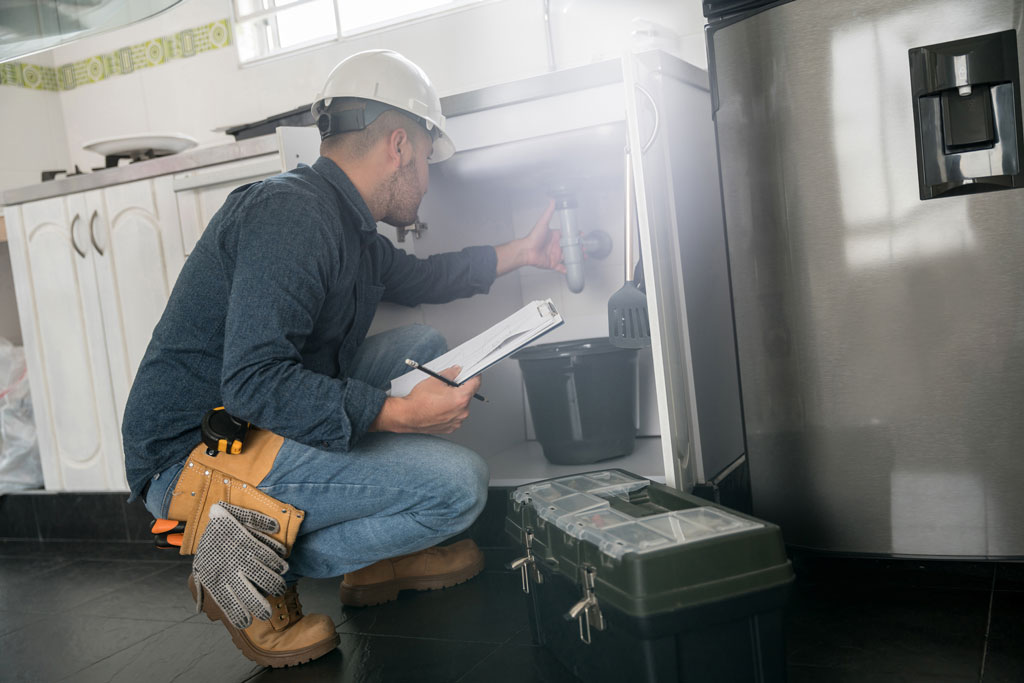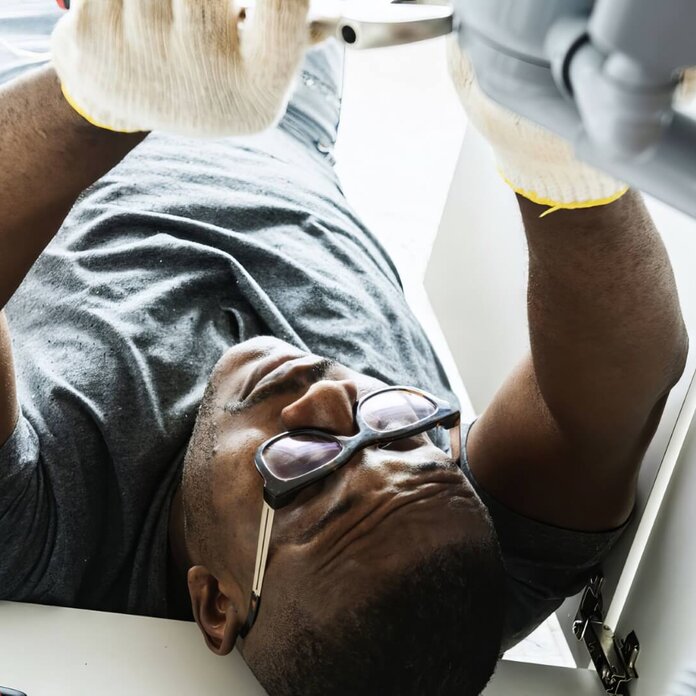Essential Plumbing Tips for Urgent Issues: What to Do Until Help Arrives
Essential Plumbing Tips for Urgent Issues: What to Do Until Help Arrives
Blog Article
What're your opinions with regards to What to Do During a Plumbing Emergency?

Plumbing emergency situations can strike any time, triggering anxiety and potential damages to your home. Whether it's a ruptured pipe, a clogged drainpipe, or a dripping tap, recognizing exactly how to handle the circumstance until a professional plumber gets here can conserve you from more issues. This short article offers important emergency situation plumbing suggestions to help you minimize damage and reclaim control throughout a pipes crisis.
Turn Off the Water Supply
The very first step in any kind of plumbing emergency is to turn off the supply of water. For localized concerns, such as a dripping faucet or toilet, switch off the valve near the fixture. When it comes to a significant leak or ruptured pipe, find your home's major water shut-off valve and transform it off right away. Knowing the area of these shutoffs beforehand can conserve useful time during an emergency situation.
Turn off Your Water Heater
In particular emergency situations, such as a burst pipeline, it's a good idea to shut off your hot water heater. This avoids overheating or damages to the unit when water quits streaming. Switch off the power supply to the hot water heater (electric or gas) and allow it cool down to stay clear of prospective threats.
Briefly Stop a Ruptured Pipe
A ruptured pipe can bring about significant water damages in minutes. To minimize the issue:
Call an expert plumber promptly to address the issue completely.
Have an Emergency Pipes Kit
Prepare a basic plumbing emergency situation kit to manage small problems successfully. Your kit ought to consist of:
Having these tools accessible can make a significant difference in your capacity to take care of emergencies.
Unclog Drains Pipes Securely.
A clogged drain can be a discouraging and unpleasant issue. Right here's just how to tackle it:.
If these approaches don't function, stay clear of making use of excessive force, as it may intensify the obstruction.
Handle Overflowing Toilets.
An overruning bathroom can create prompt disorder. Below's what you must do:.
Address Tiny Leakages with Momentary Solutions.
Tiny leakages can swiftly end up being significant problems if left unchecked. Make use of these short-lived solutions up until professional help arrives:.
While these repairs aren't permanent, they can aid decrease water loss and damage.
Deal With Frozen Pipes Very Carefully.
In colder environments, frozen pipelines are a common emergency situation. If you think an icy pipe:.
Know When to Call a Specialist.
While quick fixes can assist momentarily, certain pipes issues need prompt expert focus. Call a plumbing if:.
Promptly calling a specialist guarantees the concern is settled properly and protects against further issues.
Prevent Additional Damages.
Taking quick action to decrease damage can conserve you money and time in the long run. Here's exactly how:.
Conclusion.
Plumbing emergency situations can be frustrating, but with the best understanding and devices, you can manage the situation efficiently till aid arrives. By turning off the supply of water, attending to tiny leakages, and making use of short-term solutions, you can minimize damage and keep your home safe. Keep in mind, these ideas are short-lived remedies; always consult a certified plumbing technician to manage the origin of the trouble. Prep work and fast reasoning are your ideal allies in any kind of pipes emergency.
8 Helpful Tips for Managing Plumbing Emergencies at Home
If your plumbing system hasn’t failed once, wait for it because almost everyone has a story to tell. Sometimes, it could be simple emergencies such as a leaking pipe, a blocked cistern, or even a big burst pipe. In situations like this, you need to have some handy tips to save you some money and from possible damages.
Take care of minor issues early.
Sometimes, you could have avoided an emergency by taking proactive measures while it was still early. Some major plumbing emergencies can be a result of an ignored minor issue. We recommend that you have items like plumbing tapes and other related items. A plumbing tape can allow you to manage minor leaks before the plumber arrives.
Cut off the water supply.
This tip is essential in almost any type of leakage problem. For problems like minor leakages in the toilet or kitchen, turn off the supply that takes water to the affected pipes. If the leakage is a major pipe, you must shut off the supply valve to the entire building. This will help you avoid flooding your home and neighbors if you share a flat.
Know your plumbing system
Folks typically move into a new apartment without understanding the water supply around the building. This can prove disastrous if a water emergency arises and the plumber is far away. The previous tip will prove useless if you don’t practice this one. More importantly, know where your water shut-off valve is located – you’ll need that knowledge to prevent potential home floods.
Have some common handy tools
There are lots of plumbing emergencies that you can handle without hiring a plumber. That’s why you must keep some tools available always. Some tools that you can use to fix simple plumbing emergencies easily include plumbing tapes, screwdrivers, thread seal tapes, plungers, pliers, tape measures, and rubber gloves.
Insulate your pipes from cold
You’ll save yourself from many plumbing expenses if you protect your water pipes from the cold. This is because of the harmful effects that cold weather can have on your pipes. During winter, your pipes can burst from being overly expected to freezing temperatures. So, make sure insulators are there to keep the pipes working correctly.
Avoid practices that will clog your toilet.
Many people indulge in practices that can damage the plumbing system of the entire building. One of these is when they use their toilet to dispose-off garbage. They flush all kinds of things, such as paper towels, bandages, hairs, female sanitary products, etc., down the toilet. This will block your toilet in the long run, incurring unnecessary expenditures. Dump such waste in the trash instead.
Check your dials regularly.
Sometimes, there could be leakages in your home without noticing them in time. So, constantly monitor your water meter dial. If the dial is reading when there is nobody using water, this is an indicator that there is leaking. Check for leaks immediately. Call a plumber as soon as possible if you can’t find any.
https://www.constructionplacements.com/8-helpful-tips-for-managing-plumbing-emergencies-at-home/

I have been very excited about Plumbing Emergencies: Tips on What To Do Before and I really hope you liked the blog posting. In case you enjoyed reading our blog posting kindly be sure to pass it around. Thanks a bunch for your time. Kindly pay a visit to our site back soon.
Book Today Report this page